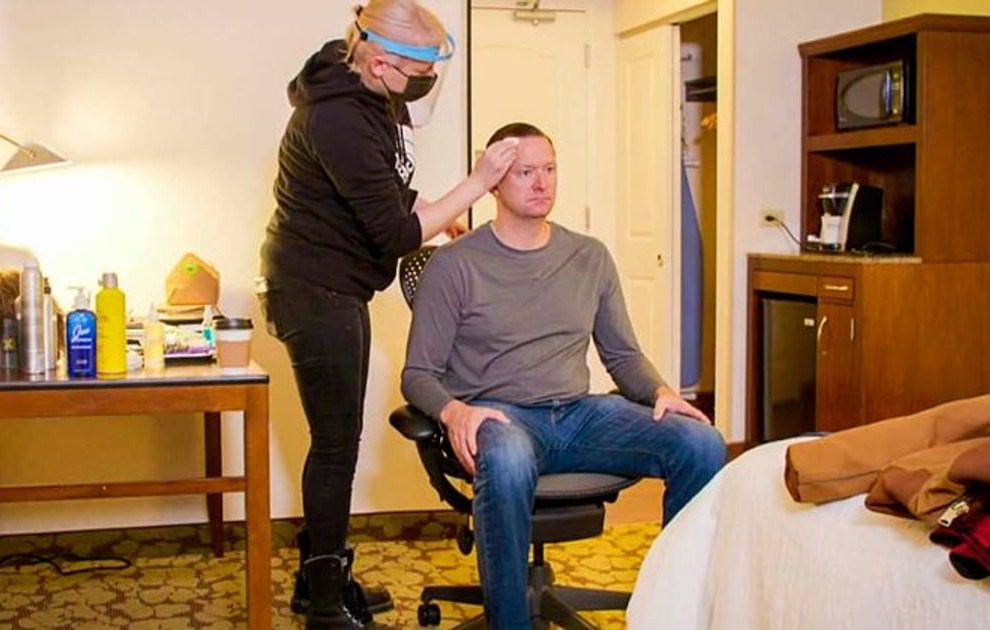How A Pandemic, And A Dash of Hollywood, Boosted A Corporate Culture Evolution


Taking the CEO role at one of the nation’s largest wireless carriers was a dream job, but starting at the height of a global pandemic was certainly not something I had prepared for. I began at UScellular in July 2020—a cautious time for in-person interactions due to pandemic restrictions. This meant that I didn’t have the opportunity to do what I deemed to be an essential first step to get acquainted with the business: connecting face-to-face with our customers and our team.
For me, meeting associates in our stores, in the hallways and in the field is one of the best ways to understand how the company is doing, both operationally and culturally. Instead, I found myself sequestered in my home office, wondering if our move to remote work for non-field workers was successful. My meetings were exclusively by video with my direct reports and also virtually to our entire 5,000-person team. Field visits were a practical challenge since I couldn’t risk being a Covid ‘super-spreader’ by visiting multiple stores or field locations in a single trip.
My first concern was “would the work get done?” Fortunately, through frequent listening sessions and creative data analytics, our leadership team found that productivity had actually increased—our remote associates were working harder than ever. As for our retail and engineering teams, they showed resilience and amazing flexibility in connecting our customers and keeping our network running. Our associates truly exemplified our culture-defining mission: To connect our customers to what matters most.
The work may have been getting done, but my second concern was “are we communicating effectively?” Prior to the pandemic, our associates spent their days in-person with their teams and in front of our customers. Collaboration and teamwork were key elements of UScellular’s culture. Even more important were the effects the pandemic had on in-person interactions at our retail stores. Customer-centricity is a foundational element of our retail experience, but we had to adjust our approach to accommodate for personal safety while maintaining our customer focus. Luckily, technology was up to the task. Many of the same connectivity tools we sell to our customers enabled our associates to stay connected and work collaboratively, no matter our location. We invested heavily in an improved digital experience, which has been a game-changer for serving our customers. Prior to the pandemic, working remotely was thought to negatively impact communication; now we are collaborating and serving our customers better than ever.
Still, even though we were productive and collaborative, I was concerned about our ability to promote cultural reinforcement when so many of us were never—or rarely—together. With a much more remote working environment, would our culture erode? Like so many other leaders, I honestly didn’t know the answer to that question. And it wasn’t an answer that I could discover behind my desk or by talking with my leadership team…I had to find out for myself.
So, when the opportunity arose in late 2020 to participate in season 11 of the CBS reality series, “Undercover Boss,” I leapt at the chance. There were of course risks involved both personally and for the company, but ones that I felt confident taking since I would at least be able to observe—albeit clandestinely—team members in action and get a better handle on the state of the UScellular culture that I missed when I first started on the job.
For those unfamiliar with the show, “Undercover Boss” follows C-suite executives as they secretly take jobs within their companies to find out how things really work and what their employees truly think of them. While uneasy about concealing my identity, my undercover persona as Matt Curran, a heavily mustachioed ex-bartender from San Diego, enabled me to be treated like any other new or prospective employee.
Through this process, I discovered that our company is in excellent hands. Uniformly, at every stop on my journey through retail sales, customer care and engineering, I met passionate, highly empathetic associates devoted to our mission and proud of the work they do—Covid or no Covid—for our 5 million customers. (Click here if you’d like to view the episode.)
I have numerous takeaways from my appearance on Undercover Boss. High on this list is evaluating and taking the risk of not knowing what would happen in front of the TV camera. The show is truly “live” – there aren’t scripted moments, and the camera reveals and magnifies both the good and bad of your company’s experience. I had seen enough reality TV shows to be wary of exposing our warts for the world to see. However, I felt confident that the core values that shape our culture would shine through when captured on film, which was proven to be true.
My participation on “Undercover Boss” gave me confidence that our culture was alive and well, but as we emerged from the pandemic, it was clear that we occasionally needed to spend time together, in-person, in order to reinforce key messages, celebrate successes and evolve to meet our customer’s needs. Remote work can be productive, but it’s difficult to lead a brainstorming session on camera, and digital hugs certainly aren’t the same as real ones. We needed to evolve our working model, but I was reluctant to set a company-wide mandate on in-office work, since we had such a diversity of team structures and working styles…not to mention a large group of associates that were now comfortable with remote work and reluctant to re-start the battle with the daily commute.
In order to meet the diverse needs of our teams but still focus on culture reinforcement, we developed a concept where associates come together “On Purpose, For a Purpose.” This requires our associates to come into the office for “purposeful” interactions when needed, but encourages them to work wherever they are comfortable when they are not attending a ‘purposeful interaction’. For instance, our customer support associates now all mostly work from home. But the “On Purpose, For a Purpose” practice brings these associates together monthly so that the team can interact, share stories and bond together. Our Corporate Strategy team has much more regular ‘purposeful interactions’, brainstorming new ways to grow our business. Our Retail teams have constant ‘purposeful interactions’ with our customers in our stores. As for my executive team, we meet in person five to six days per month for critical meetings, like business function reviews. The rhythm and model for purposeful interactions is set by each local manager, based on the needs of their specific teams. This empowers our managers to reinforce culture, while enabling our associates to benefit from the flexibility and productivity learned during the pandemic.
This ‘purposeful’ model has been very popular with our team; it has helped us weather attrition and retention challenges, and has made us an employer of choice as shown by the multiple Top Workplace awards we’ve earned in states across our footprint.
I admit that when I started my journey as CEO more than two years ago, I was uncertain how I would help the company stay on course through the turbulent challenges brought on by the pandemic and the associated disruption to how we work and serve our customers.
The risk to participate in a TV show that put the company on a big stage was a chance to show what we’re made of—and we passed with high marks. The risk to let local managers decide the appropriate working models for their teams required relinquishing control and trusting our teams—and we’ve driven industry-leading people performance because of it. There’s a business practice I learned in the Marines called ‘commander’s intent.’ This means hiring smart people, making it clear what our overarching goals are, and then trusting the team to find a way to accomplish them. Our goal is simple: connect our customers to what matters most, and the flexibility and drive of our associates to meet it continues to amaze me. The pandemic has encouraged us to take risks that we might not have been comfortable taking in the past, and we’re better for it. And yes, this is still my dream job.

Chief Executive Group exists to improve the performance of U.S. CEOs, senior executives and public-company directors, helping you grow your companies, build your communities and strengthen society. Learn more at chiefexecutivegroup.com.
0

1:00 - 5:00 pm
Over 70% of Executives Surveyed Agree: Many Strategic Planning Efforts Lack Systematic Approach Tips for Enhancing Your Strategic Planning Process
Executives expressed frustration with their current strategic planning process. Issues include:
Steve Rutan and Denise Harrison have put together an afternoon workshop that will provide the tools you need to address these concerns. They have worked with hundreds of executives to develop a systematic approach that will enable your team to make better decisions during strategic planning. Steve and Denise will walk you through exercises for prioritizing your lists and steps that will reset and reinvigorate your process. This will be a hands-on workshop that will enable you to think about your business as you use the tools that are being presented. If you are ready for a Strategic Planning tune-up, select this workshop in your registration form. The additional fee of $695 will be added to your total.

2:00 - 5:00 pm
Female leaders face the same issues all leaders do, but they often face additional challenges too. In this peer session, we will facilitate a discussion of best practices and how to overcome common barriers to help women leaders be more effective within and outside their organizations.
Limited space available.

10:30 - 5:00 pm
General’s Retreat at Hermitage Golf Course
Sponsored by UBS
General’s Retreat, built in 1986 with architect Gary Roger Baird, has been voted the “Best Golf Course in Nashville” and is a “must play” when visiting the Nashville, Tennessee area. With the beautiful setting along the Cumberland River, golfers of all capabilities will thoroughly enjoy the golf, scenery and hospitality.
The golf outing fee includes transportation to and from the hotel, greens/cart fees, use of practice facilities, and boxed lunch. The bus will leave the hotel at 10:30 am for a noon shotgun start and return to the hotel after the cocktail reception following the completion of the round.